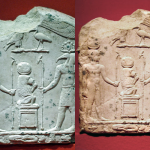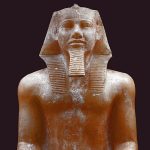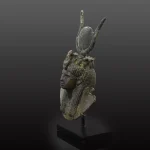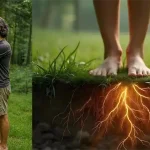Martha: The Mother Elephant’s Survival and the Urgent Call Against Snares
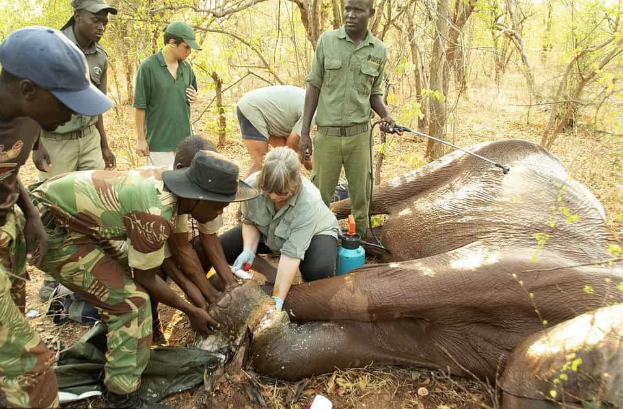
In the vast and unforgiving quiet of the Zimbabwe wilderness, a mother elephant named Martha was staggering through the bush, every movement a testament to agonizing pain. A poacher’s snare, a seemingly simple coil of wire, had wrapped itself tightly around her leg. With each step, it cut deeper, slicing into her flesh until deadly infection began to spread into her massive body. Martha, once a symbol of majesty and strength, was now crippled and trembling.
Beside her, her young calf followed anxiously. He refused to leave his mother’s side, reflecting his absolute dependence. Left untreated, this injury would have inevitably led to a slow, agonizing death for Martha, and the calf, still reliant on her milk, would have faced a similar bleak fate. It was a heartbreaking sight: a creature born to be free, now crippled by the casual cruelty of human negligence.
But this unfolding tragedy found a thread of hope. Martha was spotted near the Musango Island Safari Camp, limping, weak, and clearly desperate. The camp’s owner wasted no time, calling in local conservation veteran Catherine Norton. Norton knew that every moment counted, stating, “We had to act fast. Without this intervention, she would have died.”
The rescue team raced to Martha’s side, bringing medicine, equipment, and unwavering determination. With precision and utmost care, they sedated the giant, while the calf watched nervously. The team worked quickly—cleaning the deep, infected wound, disinfecting the raw flesh, and injecting life-saving antibiotics. The most critical moment was when they finally cut away the cruel wire that had nearly ended Martha’s life.
Minutes later, Martha stirred. Slowly, with the shaky effort of someone rising from the brink of death, she rose to her feet. The calf rushed to her side, pressing against her as if to confirm the horror was over. Within moments, mother and child were walking again—free of the trap that had almost destroyed them both.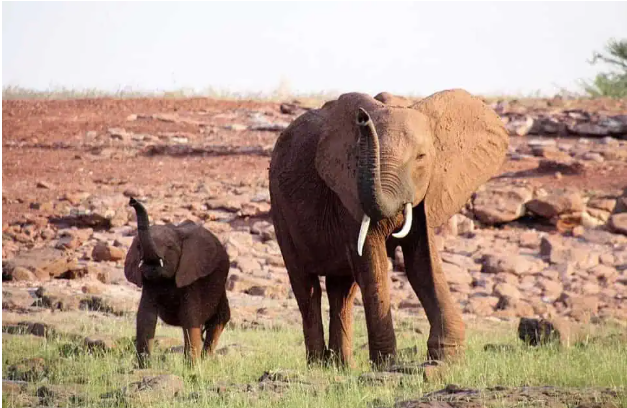
Though Martha was saved, Norton felt the joy mixed with profound sorrow. She stressed that Martha’s story is a painful reminder of the devastation caused by poaching snares. These silent killers are indiscriminate, inflicting slow torture and infection rather than a quick death on everything from antelope to elephants and lions. “This shows how much damage one wire can do to an innocent animal,” Norton said.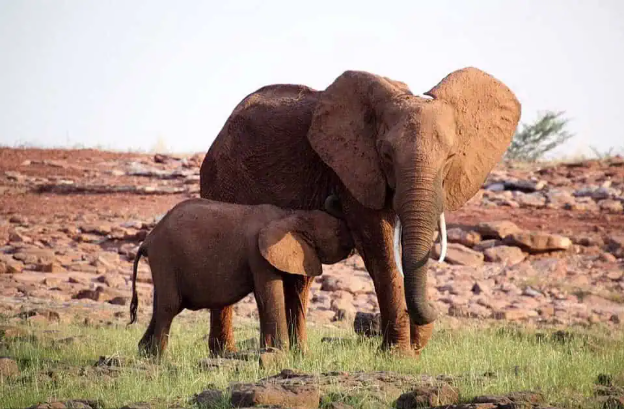
Martha’s story could have been another silent statistic buried in the African bush, but instead, it became a narrative of survival and hope. It happened because one person noticed her limp, because a team of rescuers refused to look away, and because compassion proved stronger than cruelty. As Martha disappeared into the wild, her calf pressed close, carrying not just his own weight but the precious weight of a second chance. Her survival is a powerful call to action: saving even one elephant means saving the generations that follow.


